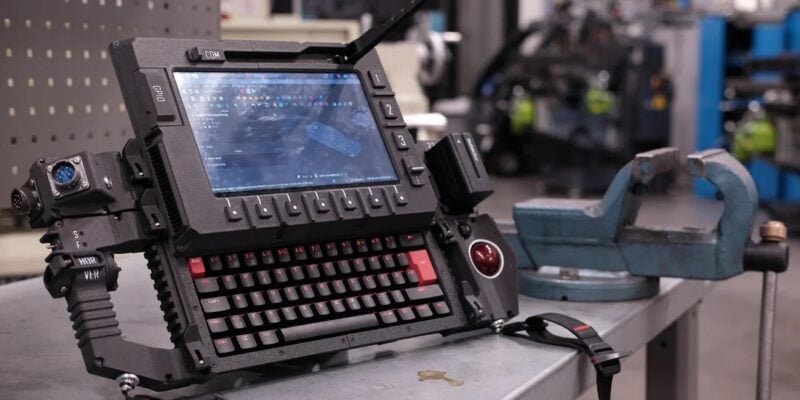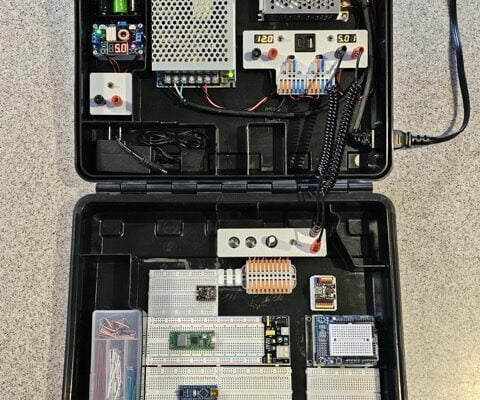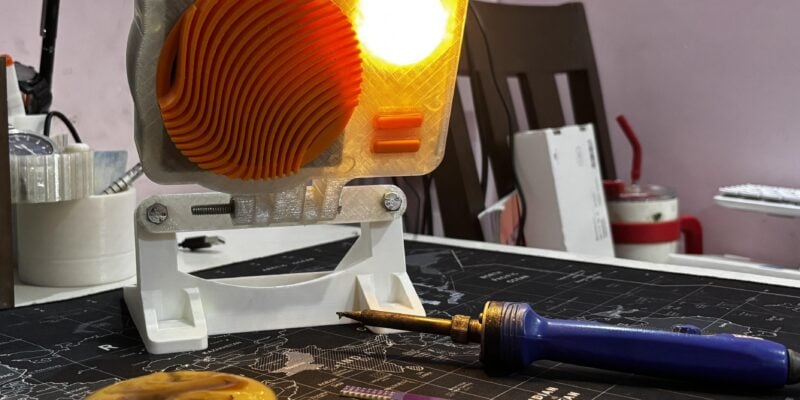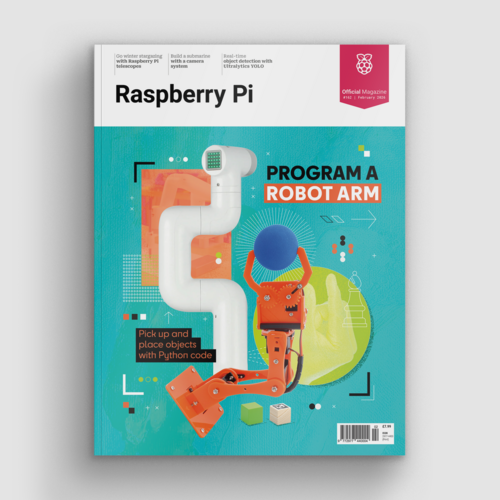Teacher Training courses start today
By Russell Barnes. Posted

Learn to teach programming and physical computing with free Raspberry Pi courses
Program a robot arm, with Raspberry Pi and Python code
Teacher training courses from The Raspberry Pi Foundation start today.
Teachers around the world are starting two new online courses with FutureLearn. The courses enable educators around the world to learn how to teach computing with a Raspberry Pi.
You can still join the FutureLearn courses:
- Teaching Programming in Primary Schools
Teaching Physical Computing with Raspberry Pi and Python. - “We hope they will inspire a new army of enthusiastic makers around the world,” says Lauren Hyams, online training manager.
Both courses are available via FutureLearn. The courses are completely free. A printed certificate, to prove that learners have completed the course, is available for a small fee.

Each course is designed to last four weeks. There are around two hours of materials for learners to work through each week. “It’s fine to take more time to reflect and learn at your own pace, though,” Lauren tells us.
The two courses will be repeated later in 2017.
Global teacher training with Raspberry Pi
The Raspberry Pi Foundation has trained over 540 educators in the US and the UK this year, “which we’re immensely proud of,” remarks Lauren.
However, this model of face-to-face training has its limitations. “We often get questions like ‘Why haven’t you run a Picademy near me yet?’ and ‘When are you coming to train us?’.”
The Raspberry PI Foundation grew frustrated at having to tell people that it didn’t have plans to provide a Picademy in their region in the foreseeable future. So, it has developed these courses as a way to reach educators around the world.
For teachers around the globe
“This new free training supports our commitment to the White House’s Computer Science For All initiative,” says Lauren.
Everybody is welcome to sign up for the two courses. However, both courses are designed with particular educators in mind. Teaching Programming in Primary Schools was designed for non-subject-specialist primary or K-5 teachers. “You don’t need any prior experience of programming to take part,” confirms Lauren.
Teaching Physical Computing with Raspberry Pi and Python was designed for anyone interested in digital making. “It will be of particular use to teachers who are note subject specialists, computing teachers, and design and technology teachers who are interested in using the Raspberry Pi and Python in their classroom,” explains Lauren.

Russell runs Raspberry Pi Press, which includes The MagPi, Hello World, HackSpace magazine, and book projects. He’s a massive sci-fi bore.
Subscribe to Raspberry Pi Official Magazine
Save up to 37% off the cover price and get a FREE Raspberry Pi Pico 2 W with a subscription to Raspberry Pi Official Magazine.
More articles

Cyberdeck
We can’t imagine the looks you’d get using this machine on your daily commute, but apparently the maker of this wonderful machine does just that.
Read more →

Programming station
Spot the microcontroller: we can see an Arduino Uno, Arduino Nano, a pair of ESP32 boards, and a Raspberry Pi Pico, all waiting to be played with.
Read more →

Solder fume extractor
This device has adjustable fan speeds and light levels, courtesy of Raspberry Pi Pico.
Read more →
